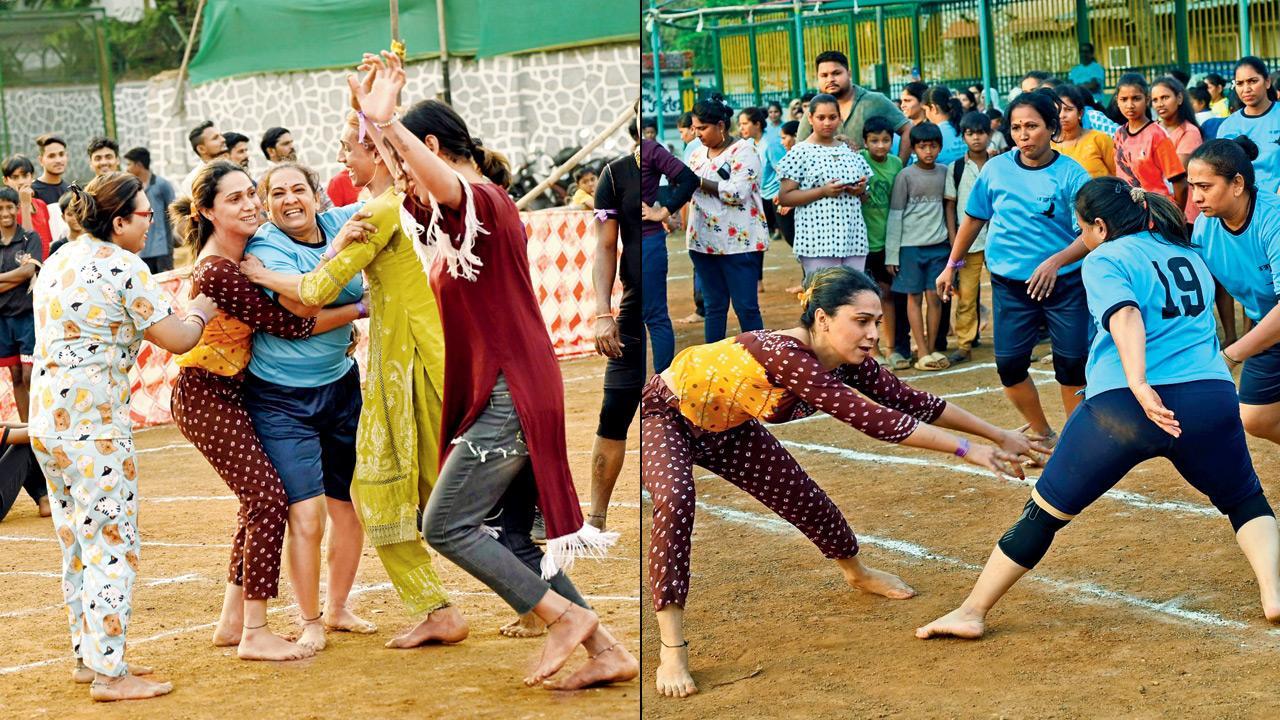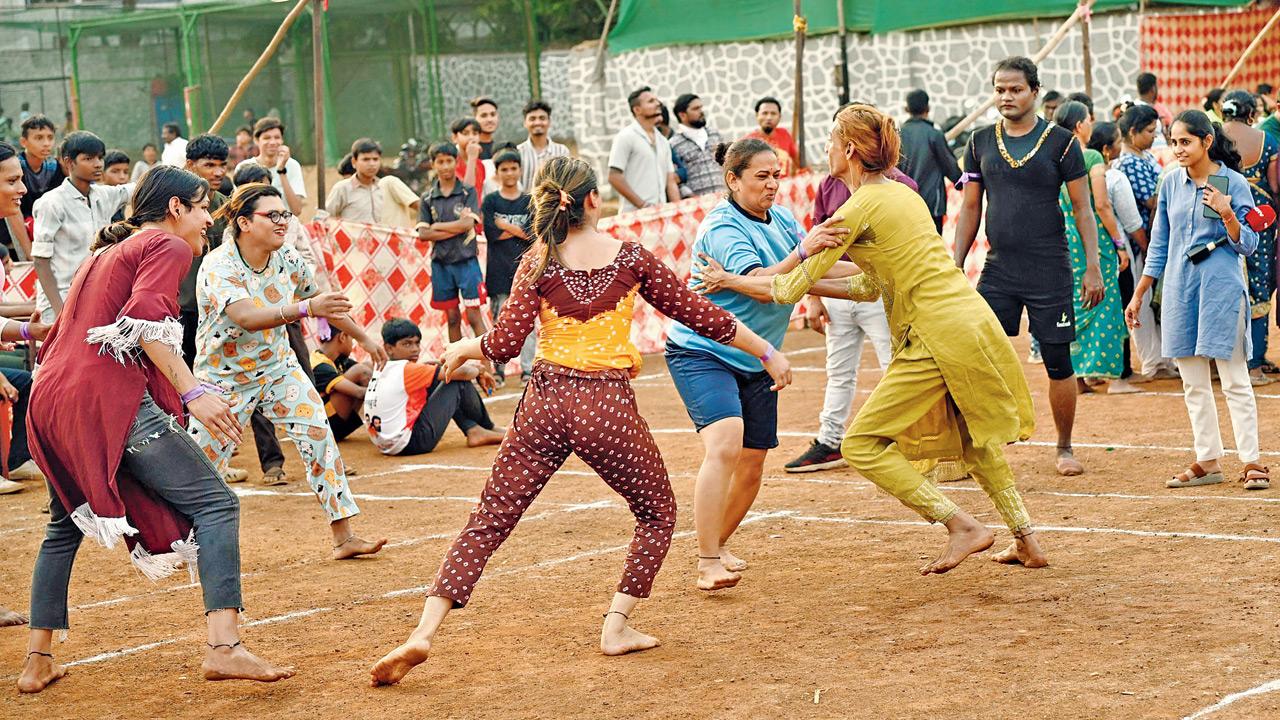City kabaddi tourney becomes vehicle of social change for a group of women—some toilet operators, those from slums and trans women

The event saw the participation of 270 people. Pic/Kirti Surve Parade
A women’s kabaddi tournament was held at Cheetah Camp, Mankhurd, in March 2024 to mark Women’s Day. This year, Coro India, working for 35 years in Maharashtra and Rajasthan for sanitation (Right to Pee campaign), women empowerment, tackling violence against women, child rights, gender rights and more, held Season 2 of the kabaddi tourney for underserved community women—many of them toilet operators, women from slums and transgender women—at a public ground in Cheetah Camp on Tuesday.
This event was a trailblazer as women toilet operators who run the slum toilets mainly in the area and around, along with women in the slum organised that tourney. There were 30 teams and a robust number of spectators cheering the 270 players.

The tournament at Cheetah Camp, Mankhurd, on Tuesday. Pic/Kirti Surve Parade
While the spirit was competitive at the outset, it was evident that kabaddi was not just a game. It was a medium for women to experience freedom, safety and the right to public space. It was all about smashing stereotypes, be it that women should not be out on the playing field or that trans-women are simply to be ridiculed. Transgender women (often shortened to trans women) are women who were assigned male at birth though they have a female gender identity.
The medium
“We are as much women as other women,” said a trans-woman Vrushali D who also worked with Coro. “This is more than kabaddi. This gives us trans-women, a forum to interact with other women. Doing so makes fears go away, as we communicate with other women and address misconceptions.” As she spoke, a group of trans-women players Sufi H, Sonia, and Jasmin (while pointing to the ground) added, “We feel good to come in here to practice.”
“It makes us feel part of society, not simply people to be laughed at or dismissed. There are a couple of stray, insulting remarks when we practise but we ignore them. In fact, it spurs us on to play with more josh (enthusiasm),” they said.
The change
As women players trickled in from nearby areas and bastis, Team Coro's Rohini Kadam, Kiran Khanderao and Anjum Shaikh, said, “This is about giving women confidence. So many of these women actually wore a t-shirt and track pants to practice for the first time, breaking away from traditional attire. That is symbolic as it means that they are also breaking the shackles, and changing norms. Most of the women have set foot on a playground after more than two or three decades. This Cheetah Camp ground sees children and men playing different sports. Even the fact that women are entering here, practising and playing means there are heralding significant change,” they said. “Most women from this strata will have to answer numerous questions from family members who ask: Why are you leaving the house? Why are you playing a sport? What does it give you?”
The confidence
The excitement was high as volunteers were watering the maidan, marking the lines for the kabaddi match. Women players from some local sports clubs said, “While it is challenging for some women to be here to play, there is family support. Family members will be in the spectator stands to cheer. Like in this sport, so in life, when we fall down, dust ourselves off, get up and go.”
That sport and life connection found resonance everywhere as these women said they had a newfound confidence thanks to the game, and improved self-esteem which translated into other areas of life. The ground also held a Coro Counselling Centre “where women are made aware that we offer counselling services too,” said counsellor Swati Bansode.
“Many of these women face domestic abuse, and economic problems. In these slums and other areas like this, houses are very close together, sometimes creating problems with neighbours. In the end, people have to live together as a community. We help find solutions for that. Here, at the game, we are the first point of outreach and those affected can come to our centres for help,” stated Bansode as the matches started.
Though the prizes were on the table, glinting in the afternoon sun, ready to be awarded to the winning team, it was evident that this was not about medals and trophies. The space, the game, the cause, organisers, volunteers and players were all agents of change and winners in their own right.
 Subscribe today by clicking the link and stay updated with the latest news!" Click here!
Subscribe today by clicking the link and stay updated with the latest news!" Click here!










